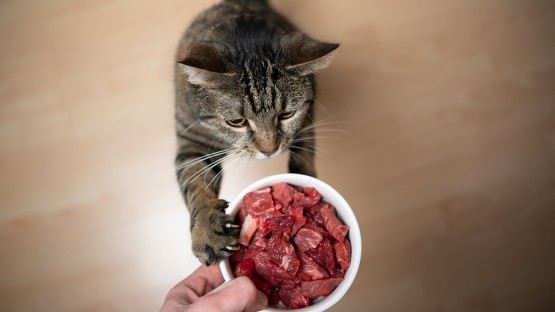Recent investigations by Cornell University have identified the presence of deadly pathogens in commercial raw cat foods. The study highlights significant health risks associated with feeding pets these products, which are often marketed as natural or healthy options.
Researchers collected and analyzed various raw cat food samples from different brands and sources. Their findings revealed the widespread presence of harmful bacteria such as Salmonella, E. coli, and Listeria monocytogenes. These pathogens pose serious health threats not only to cats but also to humans who handle the food or come into contact with contaminated surfaces.
Salmonella, in particular, was found in a substantial percentage of the samples. This bacteria can cause severe gastrointestinal illness in cats, leading to symptoms like vomiting, diarrhea, and dehydration. Moreover, humans exposed to contaminated raw food or its packaging are at risk of infection, which can be especially dangerous for children, pregnant women, and immunocompromised individuals.
The study emphasizes that the raw pet food industry has grown rapidly in recent years, driven by consumer demand for natural and minimally processed diets. However, the findings suggest that safety standards may not be adequately enforced or implemented across all brands. This raises concerns about the regulation and oversight of raw pet food products.
Veterinarians and pet owners are advised to exercise caution when considering raw diets for their animals. Proper handling, storage, and hygiene practices are crucial to minimize the risk of pathogen transmission. Cooking or thoroughly freezing raw foods can significantly reduce bacterial contamination, although some pathogens may still persist.
In response to these findings, experts recommend that pet owners consult with veterinarians to determine the safest diet options for their cats. Regulatory agencies are also urged to strengthen monitoring and testing protocols to ensure the safety of raw pet foods in the marketplace.
Overall, the Cornell study underscores the importance of balancing nutritional benefits with safety considerations. While raw diets may offer certain advantages, the potential health hazards associated with contaminated products cannot be overlooked. Pet owners should stay informed and prioritize their pets' health by choosing reputable brands and following proper food handling procedures.
